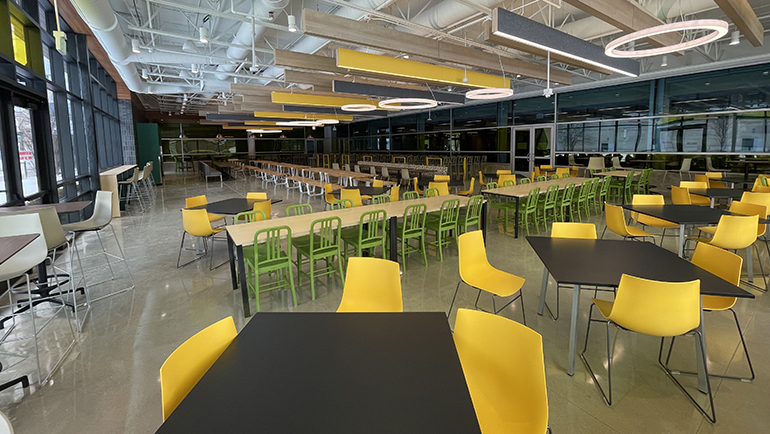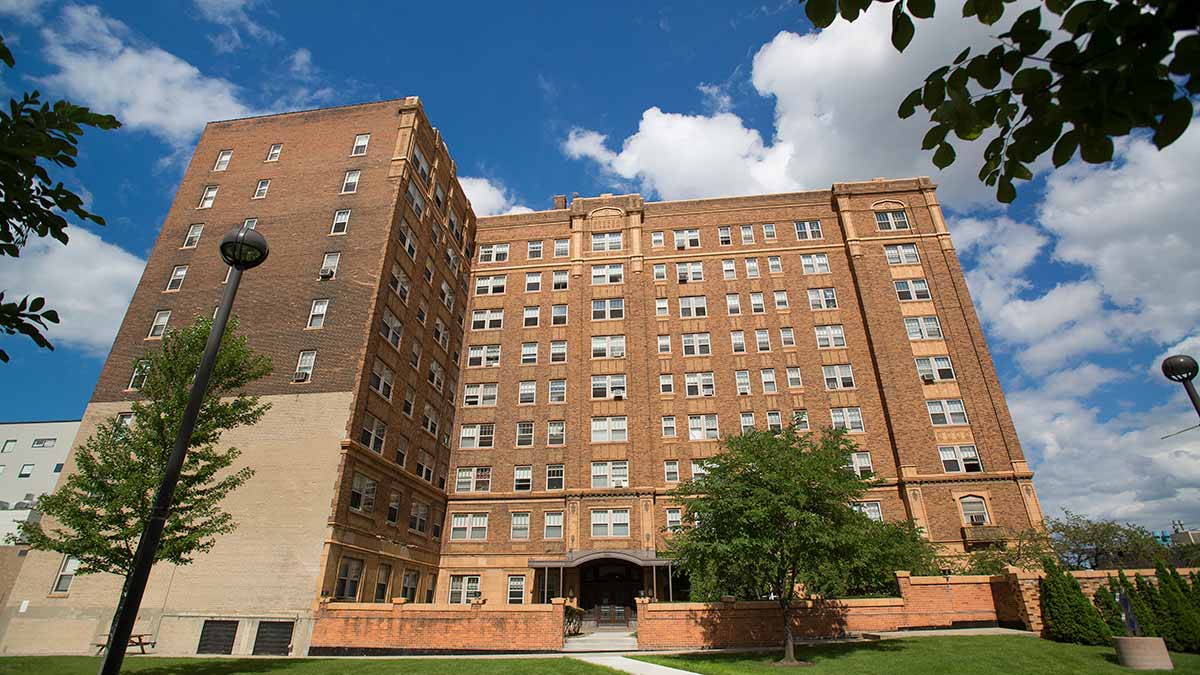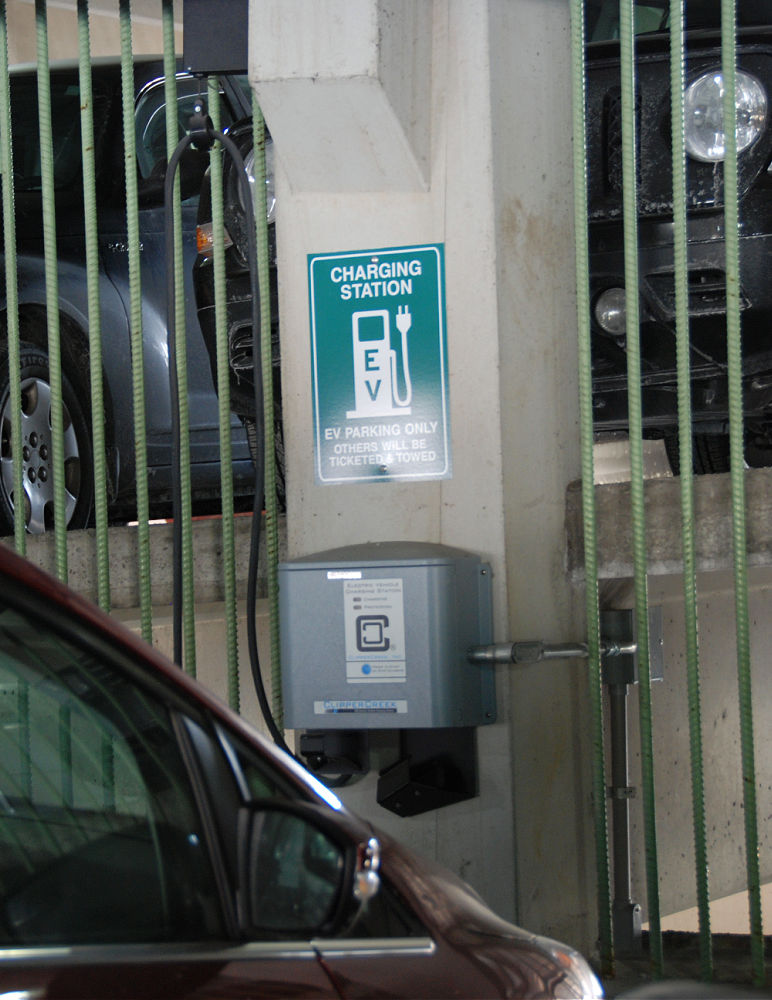
The pandemic may have slowed activities at homes and at some businesses, but that’s not the case on Wayne State’s campus.
Facilities, Planning and Management (FP&M) personnel have maintained an expeditious pace over the last several months, implementing protocols to address the ever-changing needs brought on by the pandemic while continuing important infrastructure updates throughout campus.
The following is a sampling of updates in various areas that are currently underway, planned or completed:
DTE conversion/upgrade project
The university’s power grid has been undergoing major upgrades through the DTE conversion project to significantly increase the reliability of electrical service by moving from the legacy public lighting service to the modernized DTE distribution system. Nine conversions were completed in 2020.
Air quality in campus buildings
The university continues to follow federal, state and local guidelines for indoor air quality, which is particularly important during the pandemic. Campus buildings are compliant with the standards recommended by the American Society of Heating, Refrigeration and Air-Condition Engineers (ASHRAE) — which include the quantity of fresh air required for each person in the buildings — and consistent with the activities performed in the space. Buildings are ventilated with fresh air percentages well above the design levels.
To meet the proper guidelines, all campus buildings use MERV 13 air filters as recommended by ASHRAE. The pandemic guidelines for all occupied areas, which the university follows, are accepted by the Centers for Disease Control and Prevention and the World Health Organization.
Energy conservation
Variable speed drives were added to the mechanical system fans in the Mortuary Science building. These drives will provide significant savings over the legacy damper-based control method.
LED lighting conversions continue in various areas around campus. One area of note is in the Engineering Building, where 35 400-Watt fixtures were replaced with LED-based units. The conversion, performed by the in-house electrical staff, reduced electrical consumption by 70%, improved light quality, and eliminated ongoing maintenance and hazardous lamp disposal.
Two reduced-size, high-efficiency boilers were added at the Eugene Applebaum College of Pharmacy and Health Sciences facility to accommodate steam heating and process requirements during 75% of the year. This will eliminate operating the much larger legacy boiler in an inefficient mode during the warmer months. Additionally, it adds redundancy to a critical system during the coldest months.
Elevators update
State Hall: Two existing elevators were renovated, and a new Americans with Disabilities Act (ADA)-compliant elevator was installed. Construction was completed in August 2020.
Scott Hall: Project is under construction to modernize the control system for the four-passenger elevators. Completion of elevators four and five is anticipated in April 2021; remaining elevators are scheduled for completion by July 1, 2021.
Science Hall: Replacement of the existing elevator with a new lift system and separate shipping/receiving access to the lower level. Bids are due this month with a completion date of mid-July.
McGregor Memorial Conference Center: Replacement of the existing elevator with a code compliance reliable model. Construction to begin this month with anticipated completion by the end of the year.
Football Stadium: Constructed a new ADA-compliant emergency evacuation elevator in the Stadium Auxiliary Building that connects via an enclosed bridge to the Stadium Press Box. The project is expected to be completed this month.
Housing updates
Chatsworth Suites

A campus architectural gem, the Chatsworth Suites was completed in the fall of 2020 as part of the 2016-26 housing master plan. The Chatsworth Apartment Building is a historic structure built in the 1920s. The project maintained the architectural historical structure while updating and modernizing the interior.
Historical items such as a historically accurate lobby and lounge, leaded glass entry, and restored lighting fixture were included in the restoration.
The project also included the renovation of 86 existing apartments and reconfiguring them into 96 new units and 368 beds in a state-of-the-art residence hall. Guest housing was included on the first floor to support college guests and staff. A seminar room and lounges with the latest technology were added on the first floor. Chatsworth Suites is home to the new First Year Residential Experience living learning community.
Towers Café expansion
The expansion of the Towers Café, completed in the fall of 2020, added 5,550 square feet to meet the needs of a changing residential dining program and growing campus housing program. The facility now offers 330 more seats, including more than 180 seats at community-style tables, also allowing for additional patio seating during warmer weather.
Parking

Electric Vehicle Station installations
Parking and Transportation Services currently has 10 single-port Level Two Electric Vehicle Charging Stations located throughout campus, with one located in each structure and in lots 50 and 75. Each charging station has two dedicated parking spaces for electric vehicles (EV). Currently there are no additional fees to use these stations while parking on campus.
Opportunities are being explored to procure additional EV charging stations to meet the anticipated demand for more electric vehicles – a move that is consistent with the government’s push toward a greener United States. DTE and several EV charging companies are providing incentives to install more equipment.
Campus transportation
- All shuttle service on campus continues to be suspended until further notice.
- The Office of Economic Development and PTS are working on a proposed partnership with Dart providers (DDOT, SMART and QLINE) and exploring options to possibly fund it.
Parking lot constructions
The season for construction is right around the corner, and several maintenance projects are on the table, if appropriate funding becomes available. Projects include concrete repairs, waterproofing and elevators, to name a few. Facilities include structures 1, 2, 4, 5, 6 and 8.

Structure closings
Structures 3, 4 and 5 will remain closed until campus activity increases enough to warrant their reopening.
Campus recycling program
Beginning in September, the Office of Campus Sustainability launched Wayne State’s Compost Pilot Program, an initiative to establish natural waste reduction systems in campus operations and reduce campus greenhouse gas emissions related to the university.
To date, the program has collected 2,627 pounds of preprepared food scraps and coffee grounds from the Towers Café kitchen, Student Center Building, Starbucks and Panda Express.
